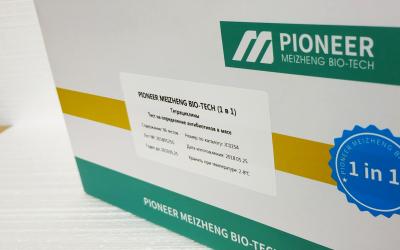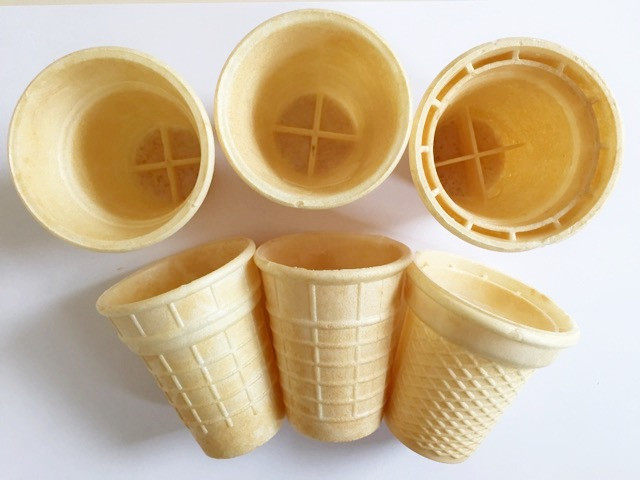Farmers ask the government of the Russian Federation to cancel the requirements for the disposal of manure
Small ones won't pull
Mikhail Mishustin is asked to amend the government decree "On approval of requirements for the circulation of animal by-products" (LPP) in order to prevent the massive closure of livestock enterprises in RUSSIA. Such a letter, signed by the speaker of the Novosibirsk Legislative Assembly, a member of the United Russia faction, Andrey Shimkiv, was sent to the prime minister at the end of March.
In the letter, the parliamentarian informs that from March 1 this year, a resolution came into force that sets new requirements for the storage of animal by-products, laboratory tests, and a ban on the introduction of unprocessed by-products into the soil.
“Currently, 585 agricultural enterprises are engaged in animal husbandry in the Novosibirsk Region. Of all, only three have or are able to create infrastructure in accordance with the requirements of the decree,” he told the HEAD of the Cabinet.
At the same time, the estimated cost of the necessary specialized sites for the region is estimated at 14 billion rubles, he specified in his appeal. According to the Ministry of Agriculture of the region, in 2023 there will be a danger of a reduction in the number of cows at 343 enterprises, Andrei Shimkiv noted.
“In order to prevent a reduction in the number of agricultural enterprises, a decrease in production volumes, and a reduction in the resulting financial and administrative burden on agribusiness enterprises, the legislative assembly of the region proposes to consider the possibility of amending the government decree,” the document says.
In particular, it is proposed to allow farmers to store waste without organizing special sites, as well as their transportation without preliminary processing and laboratory tests, if they are used as fertilizers when applied to the soil with subsequent plowing.
“Large livestock complexes in our region are able to comply with the requirements of the decree, but the rest are not. They are trying to force us to build concrete platforms for waste. But for a farm with 1,000 heads of cattle, the cost of building such a manure site will be 50-55 million rubles. How then to "recapture" these costs? Despite the fact that the prices for MILK and other agricultural products today have fallen catastrophically and continue to decline,” said Alexander Teplyakov, deputy of the Legislative Assembly, general DIRECTOR of the Siberian Grain Consortium.
According to him, farmers would like to resolve the issue in the traditional way - to take manure to the edges of the fields, and then use it in crop rotation as an organic fertilizer.
State Duma Deputy from the Novosibirsk Region Alexander Aksenenko told Izvestia that farms must submit notifications of waste for the current year by May 1, 2023, after which the ROSSELKHOZNADZOR can begin inspections.
“In this situation, fines are not so terrible as the possibility of an administrative suspension of the farm for a period of 90 days, which for livestock breeding - continuous production - is tantamount to death. It is obvious that many simply cannot cope without support,” the deputy said.
speak prematurely
The press service of the government reported that the appeal of the legislative assembly was received by the apparatus of the Cabinet of Ministers and was sent for a substantive response to the Ministry of Agriculture , the Ministry of Natural Resources and the Rosselkhoznadzor for consideration.
“Innovations on the RPL came into force on March 1, so it’s premature to talk about full-fledged law enforcement practice. It is also premature, as well as the risk of reducing the number of farms, ”the press service of the Rosselkhoznadzor said .
They also noted that the established places for storing manure and litter are not an innovation, since such a norm has always been in veterinary requirements.
At the same time, as experts note, until now, for the storage of waste, it was not required to specially construct concrete and hermetically welded film coatings or to have a clay cushion at least 20 cm thick at the base. In addition, it was not necessary to install a system for cleaning household, industrial and mixed wastewater.
“It is strange to hear that farms cannot meet the requirements. The service actively interacts with Russian farmers on this issue and carefully considers all incoming proposals,” the Rosselkhoznadzor said.
In addition, the service does not consider it appropriate to make changes to the items relating to the storage of livestock by-products arising from the breeding of cattle and small cattle, horses, without the organization of specialized sites.
“This is due to the fact that these changes offer an indefinite storage of livestock by-products,” the Rosselkhoznadzor added.
The Ministry of Natural Resources told Izvestiya that the position of the department was sent to the Ministry of Agriculture, but what it consisted of was not disclosed. Izvestia contacted the ministry with a request to comment on the situation.
Meanwhile, the problem is recognized in the State Duma Committee on Agrarian Affairs.
“This topic has been raised constantly in recent months. The Committee is completely on the side of agricultural producers,” explained Oleg Nilov, First Deputy Chairman of the Committee. According to him, it is impossible to allow the actions of the requirements of the decree to lead to a reduction in livestock enterprises in Russia.
The Association of Peasant Farms and Agricultural Cooperatives also believes that for small farms, the creation of special sites for storing raw manure will be very costly.
“A special event was held at the State Duma with the participation of deputies and Rosselkhoznadzor. Proposals were made at it to develop separate norms for small farms related to the use of livestock by-products, regarding procedures for the storage, processing and circulation of manure, taking into account the number of animals in the farms, ”the association’s press service explained.
In addition, they noted that farmers need additional clarifications regarding the place and frequency of research in the absence of laboratories. Farmers are concerned about the fact that today the prices of accredited laboratories are not regulated by the state in any way. It is necessary to monitor by regions, as well as control the marginal cost of these services, the associations added.



























































